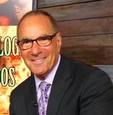George Eliot noted, “It is never too late to be what you might have been.” If who you might have been is someone with more charisma, it’s definitely not too late to learn how to be just that.
There you are at the podium, presentation in hand but you’ve got one problem. Your hands are perspired and shaking. You are so busy telling yourself that you don’t have the charisma you need to communicate, captivate and motivate your audience, that you wish the ceiling would collapse and everyone would just run out, saving you from your self-predicted failure.
You’ve been dating each other for sometime and it’s time to finally meet the family at the big holiday dinner party. “If only I had some charisma like her father and brother,” you think to yourself, “then I’d be able to establish myself as a credible guy with her family.”
Maybe you lack confidence, think you aren’t especially witty, believe that people don’t find you particularly interesting…and whenever you look in the mirror you hear your mother telling you to “stand up straight.”
Read on – you need a lesson in learning how to be more charismatic. It’s not at all an inborn, static, either-you-have-it-or-you-don’t, all-or-nothing, set of traits. Research tells us that it’s a set of skills, “charismatic leadership tactics,” that can be learned.
John Antonakis, Marika Fenley and Sue Liechti, the team from the Faculty of Business and Economics at the University of Lausanne, identified 12 of these “CLT’s” that you can learn to use. They published some of their findings in the June 2012 Harvard Business Review in an article entitled, “Learning Charisma.”
It’ll take a bit of work, lots of practice, and surely some anxiety-filled missteps, but in the end, you’ll be able to transform yourself into the impactful, persuasive, credible, positive, inspiring person you want to be. Of course, as Flip Wilson noted, “You can’t expect to hit the jackpot if you don’t put a few nickels in the machine.”
Here’s the list of the skills that research has shown you would do well to develop, that are central to being seen as more influential, trustworthy and the kind of person others look up to and want to follow. Remember, start learning to use a few at a time and build from there. Watch great speakers and those you believe have the type of charisma you want to develop, and identify these tactics in their deliveries. No doubt you’ll find them.
Use metaphors, similes and analogies, stories and anecdotes and contrasts to help those with whom you are speaking, understand and relate to what you have to say.
Ask rhetorical questions and use three-part lists to help those listening to you engage with your message.
Use expressions of moral conviction and statements that reflect what you believe are the sentiments of the group to demonstrate your passion and authority, and speak of lofty goals with confidence that those goals and intentions will be accomplished.
Your posture IS important. Nothing conveys confidence like good posture, so maybe your Mom was right. Use animated expressions of your voice, body and face to draw positive attention to your messages. This means speaking in a range of tones, from soft to more loudly, showing smiles, frowns and laughter, and even pounding the table or podium, or shrugging your shoulders and pointing. Look at others with ease, make eye contact, and uncross your arms and legs if you are seated.
“The man who moves a mountain begins by carrying away small stones,” said Confucius. No, becoming more charismatic won’t happen simply by telling your audience that you have three points to make, or using a metaphor like Martin Luther King, Jr. did in his “I Have a Dream” speech. Smiling at an audience, asking a rhetorical question and even summarizing what you believe your audience might be feeling won’t make you charismatic. It’ll help surely help. It’ll take you practicing with the determination and focus of an NFL quarterback, but as Muhammad Ali observed, “You’re not going to enjoy every minute of the journey, but the success you’ll find at the end will make it all worth it.”
Charisma is yours to behold. Go after it boldly and enjoy the transformation in your persona…at the office, on the field, with friends, in church or synagogue, at the dining room table or anywhere you want to help inspire others to develop focused purpose and achieve their goals.
Michael R. Mantell earned his Ph.D. at the University of Pennsylvania and his M.S. at Hahnemann Medical College, where he wrote his thesis on the psychological aspects of obesity. His career includes serving as the Chief Psychologist for Children’s Hospital in San Diego, and as the founding Chief Psychologist for the San Diego Police Department. He served on the faculty of UCSD’s School of Medicine, Dept. of Psychiatry.
He provides behavior science coaching for sustainable strategic outcomes, in mindful, values driven and positively adaptive ways to business leaders, entrepreneurs, athletes, individuals, families and fitness organizations to reach new breakthrough levels of success and significance in their professional and personal lives.
Michael is a member of the Scientific Advisory Board of the International Council on Active Aging, the Chief Consultant for Behavior Science for the Premier Fitness Camp at Omni La Costa, a presenter for Rancho La Puerta, and served as the Senior Consultant for Behavioral Sciences for the American Council on Exercise. He travels the world speaking with fitness and health professionals to provide the most current thinking and tools for behavior change.
He is a best-selling author of three books including the 25th Anniversary updated edition of his 1988 original “Don’t Sweat the Small Stuff, P.S. It’s All Small Stuff.” He is listed is listed in greatist.com’s 2013 “The 100 Most Influential People in Health and Fitness.”
Please connect with Michael on Twitter: @FitnessPsych & @DrSanDiego
Facebook: https://www.facebook.com/michael.mantell
Linkedin: https://www.linkedin.com/in/drmichaelmantell

Post new comment
Please Register or Login to post new comment.